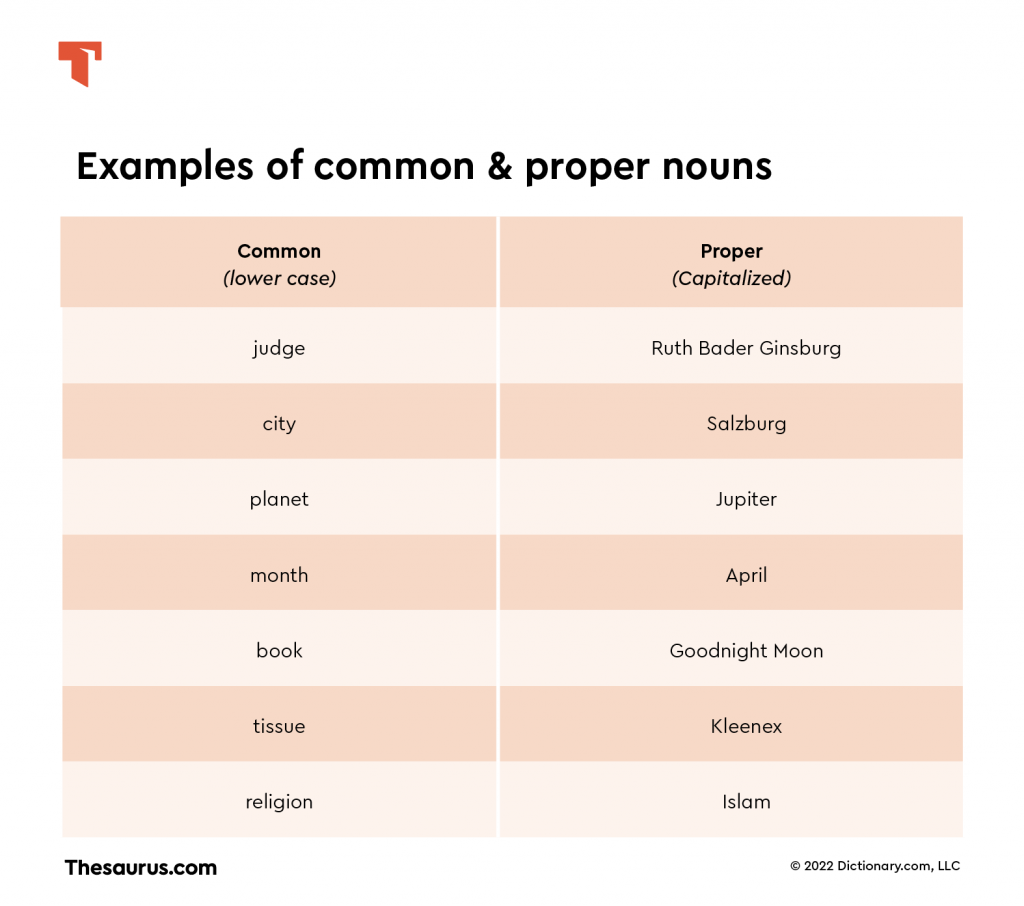How To Know The List Of Common And Proper Noun

Common And Proper Noun Anchor Chart Artofit A common noun refers to general things, while a proper noun refers to specific things. learn the difference between common and proper nouns and their uses. This list, obviously, does not include all common and proper nouns and is meant to be used as a guide while identifying other nouns. common noun exercises & review now that you know the difference between common and proper nouns, test your ability to accurately identify common nouns.

Common Nouns A proper noun names a particular person, place, or thing. some proper nouns are: noah webster, north america, and the statue of liberty. a common noun refers to a person, place, or thing (also to a quality, idea, or action), but it doesn’t name it. some common nouns are: writer, continent, and statue. proper nouns are always capitalized. Proper nouns name specific people, places, things, or ideas. while every proper noun has a corresponding common noun, not every common noun has a corresponding proper noun. common nouns and proper nouns can do many things in sentences. they can be subjects, objects, predicate nouns, and more. sentence diagramming is fun and helps us see what. Tips for recognising common & proper nouns. capitalisation: proper nouns are always capitalised, while common nouns are not unless they start a sentence. specific vs. general: proper nouns refer to unique, specific entities, whereas common nouns refer to general categories or ideas. articles and determiners: common nouns commonly come after. Wondering what the difference is between common and proper nouns? uncover what makes these two nouns different and how they’re used in language. if you know the.

Common Noun And Proper Noun Morgan Has Hancock Tips for recognising common & proper nouns. capitalisation: proper nouns are always capitalised, while common nouns are not unless they start a sentence. specific vs. general: proper nouns refer to unique, specific entities, whereas common nouns refer to general categories or ideas. articles and determiners: common nouns commonly come after. Wondering what the difference is between common and proper nouns? uncover what makes these two nouns different and how they’re used in language. if you know the. Common nouns are general names for people, places, things, or ideas, not specifying any particular entity, such as “table,” “book,” or “city.”. on the other hand, proper nouns are specific names assigned to particular people, places, or things, like “john,” “paris,” or “mount everest.”. A noun is a part of the sentence that refers to a person, place or thing. a common noun specifies that person, place or thing without fully defining it and is not capitalized. common nouns can refer to places, things and people all over the world. a proper noun defines the person, place or thing and is almost always capitalized.

Common Vs Proper Nouns Thesaurus Common nouns are general names for people, places, things, or ideas, not specifying any particular entity, such as “table,” “book,” or “city.”. on the other hand, proper nouns are specific names assigned to particular people, places, or things, like “john,” “paris,” or “mount everest.”. A noun is a part of the sentence that refers to a person, place or thing. a common noun specifies that person, place or thing without fully defining it and is not capitalized. common nouns can refer to places, things and people all over the world. a proper noun defines the person, place or thing and is almost always capitalized.

30 Common And Proper Noun Examples Example Sentences Common And Proper Nouns Proper Noun

Comments are closed.